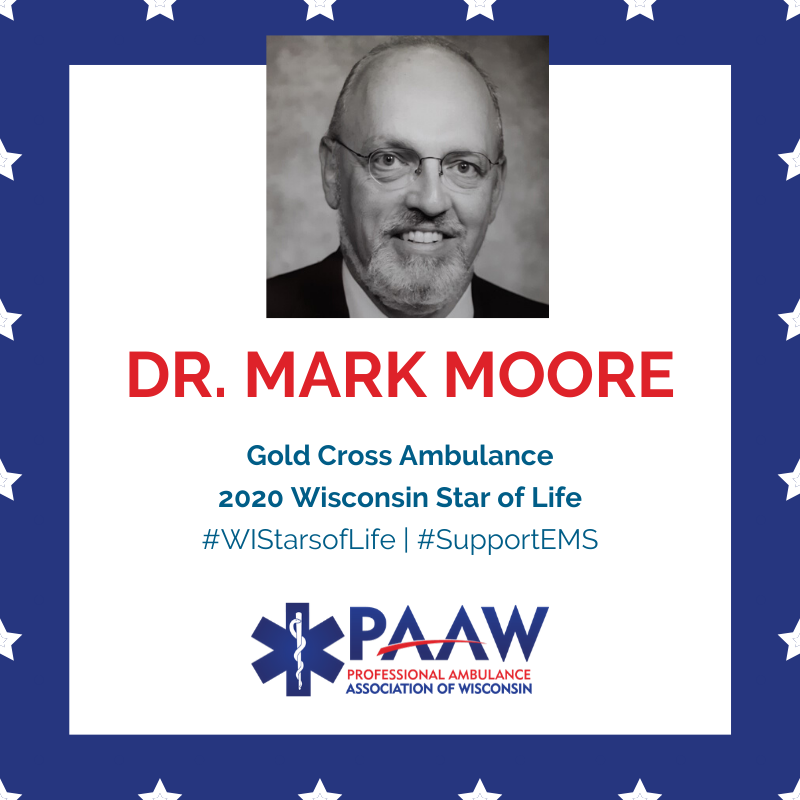Dr. Mark Moore
Gold Cross Ambulance
2020 Wisconsin Star of Life

Dr. F. Mark Moore was recruited by Dr. Thomas Loescher to come to Appleton, WI at the ACEP conference in San Francisco in 1972. Dr. Loescher was spearheading an effort to provide 24-hour emergency room physician coverage in the Emergency Department at St. Elizabeth Hospital and he also had plans to develop a paramedic program in Appleton.
One of the things about Dr. Moore that interested Dr. Loescher, was that he had served in Vietnam, and had seen first-hand the value of medics saving lives on the battlefield. Dr. Moore agreed to come to the Fox Valley to work in the ER, but the job also entailed helping train the first groups of paramedics outside of Madison and Milwaukee.
While Dr. Loescher took care of the administrative duties, the training of the medics was entrusted to Dr. Moore, who arrived in 1973. Dr. Moore taught the EMTs emergency medicine and supervised their clinical experiences in the emergency department. He also enlisted other Appleton physicians to teach special areas, including intubation, cardiology, obstetrics, psychiatrics, orthopedics, and pediatrics. Dr. Moore said, “We decided to train the paramedics here rather than sending them to Madison or Milwaukee so that the local physicians could be involved in the teaching; they would know what the paramedics were capable of doing and would understand how the program works. And this approach has worked. The physician community in Appleton is very supportive of the program. There was no written curriculum and no guidelines to follow. We designed and taught the equivalent of basic, intermediate and advanced paramedic skills in blocks.” Dr. Moore and other ER physicians rode along on EMS runs, provided public education, lectured at EMS conferences, and sought federal funding for equipment for the ambulances. They even made a film to be shown to the public to promote “this new EMS” to the public. He went on to say, “The paramedics are our eyes, ears, and hands in the field. They are a special breed of people.”
In 1980, Dr. Moore issued written “Protocols of the Appleton-Neenah-Waupaca Paramedic Program.” In 1981, under his direction, these same paramedics became the first EMS group outside of Madison and Milwaukee to be certified in Advanced Cardiac Life Support.
Dr. Moore truly was one of the pioneers of EMS in Wisconsin. He served for 48 years in emergency medicine before retiring in July, 2019 and now lives in Berlin, WI.We are very excited to nominate Dr. Moore as a 2020 Wisconsin Star of Life!

